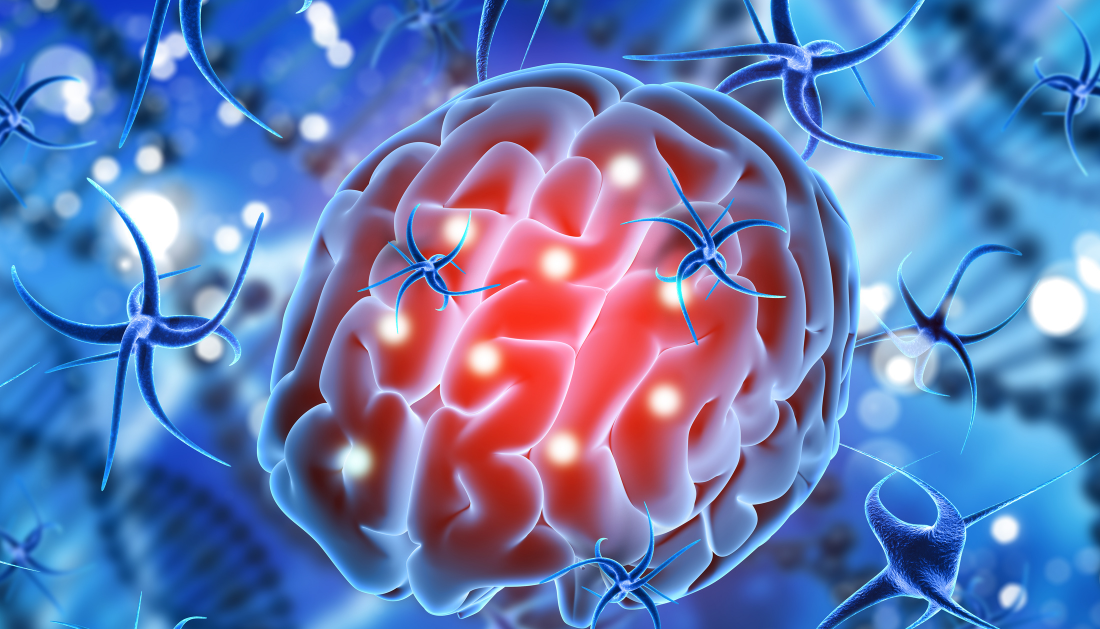

Trinity College Dublin scientists and FutureNeuro investigators announced a significant discovery that has fundamental implications for our understanding of brain fog and cognitive deterioration seen in some long COVID patients.
In the months following the detection of the new coronavirus SARS-CoV2 in late 2019, a patient-reported illness known as Long COVID emerged as a persistent manifestation of acute infection.
Long COVID has up to 200 reported symptoms, although most patients describe persistent symptoms such as fatigue, shortness of breath, memory and thinking issues, and joint/muscle discomfort. While the vast majority of COVID-19 patients recover completely, any of these symptoms that persist for more than 12 weeks after infection are labeled Long COVID.
Long COVID has become a major public health concern since the pandemic began in 2020. While international incidence rates vary, it is expected to afflict up to 10% of SARS-CoV2-infected patients. Just under half of the patients with Long-COVID report some sort of residual neurological consequence, such as cognitive deterioration, weariness, or brain fog.
The Trinity team’s findings, published in the prestigious international journal Nature Neuroscience, revealed that there was disturbance to the integrity of the blood vessels in the brains of patients suffering from Long COVID and brain fog. This blood vessel “leakness” was able to objectively discriminate between patients with brain fog and cognitive loss and those suffering from Long-COVID but not brain fog.
The team, led by scientists at Trinity’s Smurfit Institute of Genetics and neurologists from the School of Medicine, also discovered a new type of MRI scan that demonstrates how Long-COVID affects the human brain’s complex network of blood vessels.
“For the first time, we were able to demonstrate that leaky blood vessels in the human brain, together with a hyperactive immune system, may be the primary causes of brain fog associated with Long COVID. This is significant because understanding the underlying cause of these diseases will allow us to create targeted medicines for patients in the future,” said Prof. Matthew Campbell, Professor of Genetics, Head of Genetics at Trinity, and Principal Investigator at FutureNeuro.
This project was started with a rapid response grant from Science Foundation Ireland (SFI) at the height of the pandemic in 2020, and it involves enrolling patients suffering from the effects of Long-COVID as well as patients who were hospitalized at St. James’ Hospital.
“Undertaking this challenging clinical research project during a national crisis and when our hospital system was under great strain demonstrates the competence and resource of our medical trainees and staff. The discoveries are likely to revolutionize the way we understand and treat post-viral neurological disorders. It further indicates that long-term COVID-related neurological symptoms are measurable, with actual and demonstrable metabolic and vascular alterations in the brain,” stated Prof. Colin Doherty, Professor of Neurology and Head of the School of Medicine at Trinity, and Principal Investigator at FutureNeuro.
Moving beyond COVID-19
In recent years, it has become clear that many neurological disorders, including multiple sclerosis (MS), are most likely caused by a viral infection. However, showing a direct link has always been difficult.
Prof. Campbell said: “Here, the team at Trinity was able to prove that every patient that developed Long-COVID had been diagnosed with SARS-CoV2 infection, because Ireland required every documented case to be diagnosed using the more accurate PCR-based methods. The concept that many other viral infections that lead to post-viral syndromes might drive blood vessel leakage in the brain is potentially game changing and is under active investigation by the team.”
Dr. Chris Greene, the study’s first author and postdoctoral research fellow, added, “Our findings have now set the stage for future studies addressing the molecular mechanisms that lead to post-viral weariness and brain fog. Without a doubt, comparable mechanisms are at work across many different forms of viral infection, and we are now getting close to understanding how and why they induce neurological dysfunction in patients.”
More information: Blood–brain barrier disruption and sustained systemic inflammation in individuals with long COVID-associated cognitive impairment, Nature Neuroscience (2024). DOI: 10.1038/s41593-024-01576-9
more recommended stories
 Nanoplastics in Brain Tissue and Neurological Risk
Nanoplastics in Brain Tissue and Neurological RiskKey Takeaways for HCPs Nanoplastics are.
 AI Predicts Chronic GVHD Risk After Stem Cell Transplant
AI Predicts Chronic GVHD Risk After Stem Cell TransplantKey Takeaways A new AI-driven tool,.
 Red Meat Consumption Linked to Higher Diabetes Odds
Red Meat Consumption Linked to Higher Diabetes OddsKey Takeaways Higher intake of total,.
 Pediatric Crohn’s Disease Microbial Signature Identified
Pediatric Crohn’s Disease Microbial Signature IdentifiedKey Points at a Glance NYU.
 Nanovaccine Design Boosts Immune Attack on HPV Tumors
Nanovaccine Design Boosts Immune Attack on HPV TumorsKey Highlights Reconfiguring peptide orientation significantly.
 High-Fat Diets Cause Damage to Metabolic Health
High-Fat Diets Cause Damage to Metabolic HealthKey Points Takeaways High-fat and ketogenic.
 Acute Ischemic Stroke: New Evidence for Neuroprotection
Acute Ischemic Stroke: New Evidence for NeuroprotectionKey Highlights A Phase III clinical.
 Statins Rarely Cause Side Effects, Large Trials Show
Statins Rarely Cause Side Effects, Large Trials ShowKey Points at a Glance Large.
 Anxiety Reduction and Emotional Support on Social Media
Anxiety Reduction and Emotional Support on Social MediaKey Summary Anxiety commonly begins in.
 Liquid Biopsy Measures Epigenetic Instability in Cancer
Liquid Biopsy Measures Epigenetic Instability in CancerKey Takeaways Johns Hopkins researchers developed.

Leave a Comment